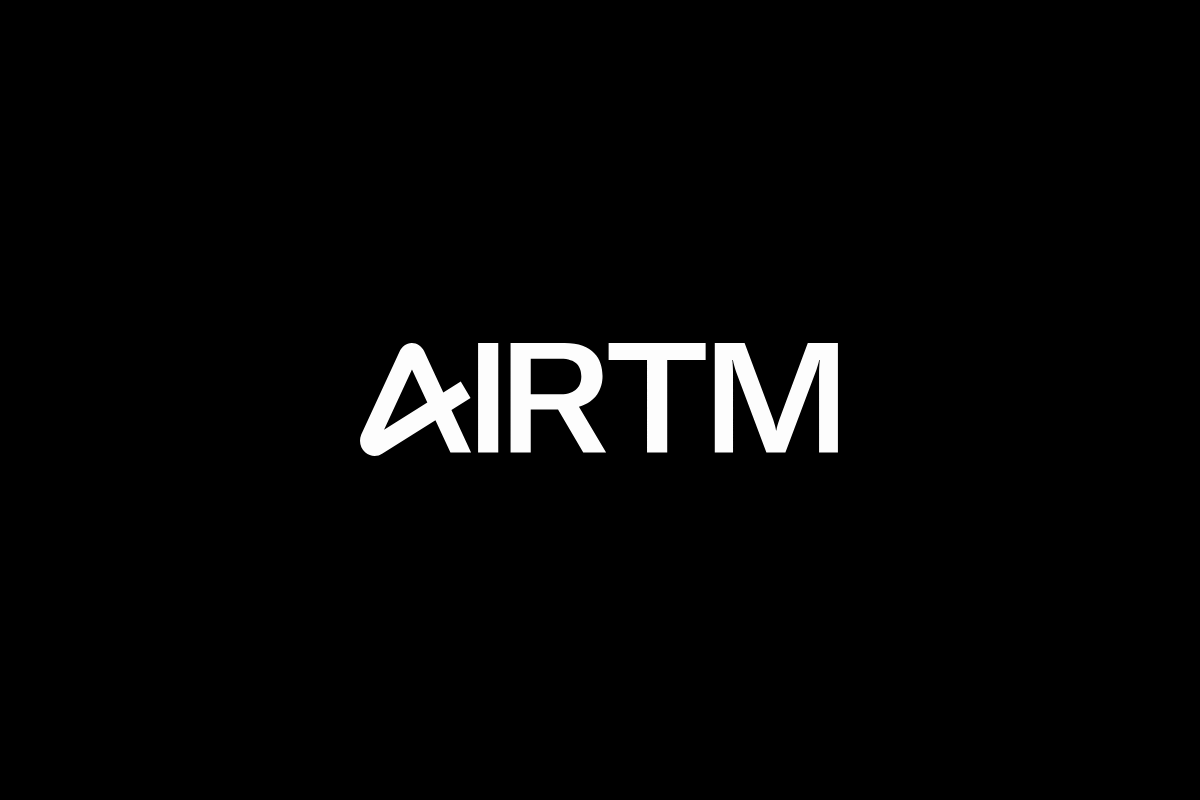Fintech
Bank of England Rejects Revolut’s Bid for a Banking Licence

In a major setback for Revolut, the Bank of England has rejected the fintech giant’s long-awaited bid for a UK banking licence. The decision deals a significant blow to Revolut’s ambitions of becoming a full-service bank, limiting its ability to offer certain financial products and services in its home market. The rejection also raises questions about the regulatory challenges that fintech companies face as they seek to expand their operations and compete with traditional banks.
Revolut’s Banking Licence Journey
Revolut, founded in 2015, has grown rapidly to become one of Europe’s largest fintech companies, offering a range of financial services including payments, currency exchange, and crypto trading. The company’s ultimate goal has been to obtain a UK banking licence, which would allow it to offer deposit accounts, lending services, and a broader range of financial products.
Revolut’s application for a UK banking licence was submitted to the Prudential Regulation Authority (PRA) and the Financial Conduct Authority (FCA) more than two years ago. However, the process has been marred by delays and increased scrutiny from regulators, particularly regarding concerns over governance, financial controls, and the robustness of its compliance framework.
Why the Application Was Rejected
The Bank of England’s decision to reject Revolut’s application for a banking licence is reportedly based on concerns related to the company’s risk management practices, financial reporting, and governance structure. While Revolut has made significant strides in improving its internal controls and compliance processes, regulators remain unconvinced that the company is adequately equipped to handle the responsibilities and risks associated with operating as a full-service bank.
Key issues cited by the regulators include:
- Financial Reporting: Regulators raised concerns about the accuracy and transparency of Revolut’s financial reporting. Given the importance of reliable financial data in banking operations, the Bank of England was unwilling to grant a licence without clear evidence that Revolut could meet these standards.
- Risk Management: Effective risk management is a cornerstone of banking, and regulators have highlighted gaps in Revolut’s approach to managing risks, particularly in areas like anti-money laundering (AML) and fraud prevention.
- Governance and Board Oversight: The governance structure at Revolut has come under scrutiny, with questions raised about the independence and expertise of its board. Regulators expect licensed banks to have a robust governance framework that includes independent oversight and accountability.
The Impact of the Rejection on Revolut
The rejection of its banking licence application is a significant setback for Revolut, which has been positioning itself as a global financial super app. Without a UK banking licence, the company’s ability to offer core banking products like deposit accounts and loans will be limited, which could hinder its growth prospects in the UK market.
Additionally, the decision may impact Revolut’s reputation and investor confidence. The company has been planning a public listing, and the rejection of its banking licence could raise concerns among potential investors about the regulatory challenges it faces.
However, Revolut remains undeterred in its pursuit of a banking licence. The company has indicated that it will continue to engage with regulators and address the concerns raised in order to secure approval in the future. In the meantime, Revolut will focus on expanding its product offerings and growing its customer base through its existing regulatory permissions.
The Broader Implications for the Fintech Industry
The Bank of England’s decision has broader implications for the fintech industry as a whole. It underscores the stringent regulatory requirements that fintech companies must meet in order to obtain a banking licence, and highlights the challenges they face in transitioning from digital-first disruptors to fully licensed banks.
As fintech companies seek to expand their operations and offer a wider range of financial products, they must navigate a complex regulatory landscape that demands rigorous oversight and compliance. The rejection of Revolut’s application serves as a reminder that, while fintechs may excel in innovation and customer experience, they must also meet the same high standards of governance, risk management, and financial reporting as traditional banks.
What’s Next for Revolut?
Despite this setback, Revolut is likely to remain a formidable player in the fintech space. The company’s existing product offerings, including its popular multi-currency accounts and crypto trading services, continue to attract millions of users worldwide. Additionally, Revolut has secured banking licences in several European countries, allowing it to operate as a bank in markets outside the UK.
In the coming months, Revolut is expected to focus on addressing the concerns raised by the Bank of England and refining its approach to governance, risk management, and compliance. The company has made it clear that obtaining a UK banking licence remains a top priority, and it will likely reapply once it believes it has met the regulatory requirements.
Conclusion
The Bank of England’s rejection of Revolut’s banking licence application highlights the challenges that even the most successful fintech companies face when seeking to enter the highly regulated banking sector. For Revolut, the decision represents a significant hurdle, but it also provides an opportunity for the company to strengthen its internal controls and demonstrate its commitment to meeting the highest standards of governance and compliance. As the fintech industry continues to evolve, the balance between innovation and regulation will remain a key factor in determining the future success of companies like Revolut.
Source: FFNews
The post Bank of England Rejects Revolut’s Bid for a Banking Licence appeared first on HIPTHER Alerts.
Fintech
Fintech Pulse: Your Daily Industry Brief (Chime, ZBD, MiCA)

As we close out 2024, the fintech industry continues to deliver headlines that underscore its dynamism and innovation. From IPO aspirations to groundbreaking regulatory milestones, today’s updates highlight the transformative power of fintech partnerships, regulatory evolution, and disruptive technologies. Here’s what you need to know.
Chime’s Quiet Step Toward Public Markets
Chime, the U.S.-based financial technology startup best known for its digital banking services, has taken a significant step by filing confidential paperwork for an initial public offering (IPO). As one of the most valuable private fintechs in the U.S., Chime’s move could potentially signal a renewed appetite for fintech IPOs in a market that has been cautious following fluctuating valuations across the tech sector.
With a valuation that reportedly exceeded $25 billion in its last funding round, Chime’s IPO could set a new benchmark for the industry. Observers note that its strong customer base and revenue growth may make it an appealing choice for investors seeking to capitalize on the digital banking boom. However, the timing and success of the IPO will depend on broader market conditions and the regulatory landscape.
Source: Bloomberg
ZBD’s Pioneering Achievement: EU MiCA License Approval
ZBD, a fintech company specializing in Bitcoin Lightning network solutions, has made history by becoming the first to secure an EU MiCA (Markets in Crypto-Assets Regulation) license. This landmark approval by the Dutch regulator positions ZBD at the forefront of compliant crypto-fintech operations in Europe.
MiCA, which aims to harmonize the regulatory framework for crypto-assets across the EU, has been a focal point for industry players aiming to establish legitimacy and expand their offerings. ZBD’s achievement not only validates its operational rigor but also sets a precedent for other fintech firms navigating the evolving regulatory landscape.
Industry insiders view this as a strategic advantage for ZBD as it broadens its footprint in Europe. By leveraging its regulatory approval, the company can accelerate its product deployment and establish trust with institutional and retail users alike.
Source: Coindesk, PR Newswire
The Fintech-Credit Union Synergy: A Blueprint for Innovation
The convergence of fintechs and credit unions continues to reshape the financial services ecosystem. Collaborative initiatives, such as the one highlighted in the recent partnership between fintech innovators and credit unions, are proving to be a potent force in delivering tailored financial solutions.
This “dream team” approach allows credit unions to leverage fintech’s technological expertise while maintaining their community-focused ethos. Key areas of collaboration include digital payments, personalized financial management tools, and enhanced loan processing capabilities. These partnerships not only enhance member engagement but also enable credit unions to remain competitive in an increasingly digital-first financial environment.
Industry analysts emphasize that such collaborations underscore a broader trend of traditional financial institutions embracing fintech-driven solutions to bridge service gaps and foster innovation.
Source: PYMNTS
Tackling Student Loan Debt: A Fintech’s Mission
Student loan debt remains a pressing issue for millions of Americans, and a Rochester-based fintech aims to offer relief through its cloud-based platform. This innovative solution is designed to simplify loan management and provide borrowers with actionable insights to reduce their debt burden.
The platform’s features include repayment optimization tools, personalized financial education, and seamless integration with loan servicers. By addressing the complexities of student loan management, this fintech is empowering borrowers to make informed decisions and achieve financial stability.
As the student loan crisis continues to evolve, solutions like this highlight the critical role fintech can play in addressing systemic financial challenges while fostering financial literacy and inclusion.
Source: RBJ
Industry Implications and Takeaways
Today’s updates underscore several key themes shaping the fintech landscape:
- Regulatory Milestones: ZBD’s MiCA license approval exemplifies the importance of regulatory compliance in unlocking growth opportunities.
- Strategic Partnerships: The collaboration between fintechs and credit unions demonstrates the value of combining technological innovation with traditional financial models to drive customer-centric solutions.
- Market Opportunities: Chime’s IPO move reflects a potential revival in fintech public offerings, signaling confidence in the sector’s long-term prospects.
- Social Impact: Fintech’s ability to tackle systemic issues, such as student loan debt, showcases its role as a force for positive change.
The post Fintech Pulse: Your Daily Industry Brief (Chime, ZBD, MiCA) appeared first on News, Events, Advertising Options.
Fintech
SPAYZ.io prepares for iFX EXPO Dubai 2025

Leading global payments platform SPAYZ.io has confirmed it will be attending iFX EXPO Dubai 2025 on 14 to 16 January. Exhibiting at Stand 64 at Trade Centre Dubai, SPAYZ.io’s team of professionals will be on hand providing live demonstrations of its renowned payment services for payment providers. Attendees will also receive exclusive insight into SPAYZ.io’s plans for 2025 alongside early early access to its upcoming plans for the new year.
SPAYZ.io delivers a host of payment solutions that leverage the latest technological innovations and open access to the fastest growing emerging markets across Africa, Europe and Asia. Over the past year, there has been huge demand for its Open Banking and local payment method services, alongside bank transfers, mass payouts, online banking and e-wallets.
Yana Thakurta, Head of Business Development at SPAYZ.io commented: “We look forward to once again participating at iFX Dubai to expand our network of partners and clients. It’s a fantastic way to kick off the year, connecting with thousands of industry leaders from FOREX platforms to trading companies, and everything in between.
“Our key goal for iFX Dubai EXPO 2025 is to expand our portfolio of solutions and geographies. We’re using this as an opportunity to partner with like-minded entities who share our ambition to provide payment solutions that are truly global.”
Come meet SPAYZ.io’s team at the Trade Centre Dubai at Stand 64. You can also book a meeting slot with a member of a team.
The post SPAYZ.io prepares for iFX EXPO Dubai 2025 appeared first on News, Events, Advertising Options.
Fintech
Airtm Enhances Its Board of Directors with Two Strategic Appointments

Airtm, the most connected digital dollar account in the world, is proud to announce the addition of two distinguished industry leaders to its Board of Directors: Rafael de la Vega, Global SVP of Partnerships at Auctane, and Shivani Siroya, CEO & Founder of Tala. These appointments reflect Airtm’s commitment to innovation and financial inclusion as the company enters its next phase of growth.
“We are thrilled to welcome Rafael and Shivani to Airtm’s Board of Directors,” said Ruben Galindo Steckel, Co-founder and CEO of Airtm. “Their unique perspectives and proven track records will be invaluable as we continue scaling our platform to empower individuals and businesses in emerging markets. Together, we’ll push the boundaries of financial inclusion and innovation to create a more connected and equitable global economy. Rafael and Shivani bring a wealth of experience and strategic insight that will strengthen Airtm’s mission to connect emerging economies with the global market.”
Rafael de la Vega, a seasoned leader in fintech global partnerships and technology innovation, is currently the Global SVP of Partnerships at Auctane. With a proven track record of delivering scalable, impactful solutions at the intersection of fintech, innovation, and commerce, Rafael’s expertise will be pivotal as Airtm continues to grow. “Airtm has built a platform that breaks down barriers and opens up opportunities for people in emerging economies to connect to global markets. I am excited to contribute to its growth and help further its mission of fostering financial inclusion on a global scale,” said Rafael.
Shivani Siroya, CEO and Founder of Tala, is a pioneer in financial technology, renowned for empowering underserved communities through access to credit and essential financial tools. Her leadership in leveraging data-driven innovation aligns seamlessly with Airtm’s vision of creating more equitable financial opportunities. “Empowering underserved communities has always been at the core of my work, and Airtm’s mission resonates deeply with me. I’m thrilled to join the Board and work alongside such a dynamic team to expand access to financial tools that truly make a difference in people’s lives,” said Shivani.
The post Airtm Enhances Its Board of Directors with Two Strategic Appointments appeared first on News, Events, Advertising Options.
-

 Fintech6 days ago
Fintech6 days agoFintech Pulse: Your Daily Industry Brief (Synapse, Shenzhen Institute, Visa, AutomatIQ, MeridianLink)
-

 Fintech5 days ago
Fintech5 days agoFintech Pulse: Your Daily Industry Brief (Revolut, Bestow, Advyzon, Tyme Group, Nubank)
-

 Fintech3 days ago
Fintech3 days agoFintech Pulse: Your Daily Industry Brief (Chime, ZBD, MiCA)
-

 Fintech5 days ago
Fintech5 days agoAsian Financial Forum returns as region’s first major international financial assembly in 2025
-

 Fintech6 days ago
Fintech6 days agoNASDAQ-Listed LYTUS Appoints Visionary Leader Sai Guna Ranjan Puranam as COO (Lytus Healthcare) and Group CTO (Lytus Technologies) to Revolutionize Healthcare and Technology
-

 Fintech PR2 days ago
Fintech PR2 days agoAccording to Tickmill survey, 3 in 10 Britons in economic difficulty: Purchasing power down 41% since 2004
-

 Fintech6 days ago
Fintech6 days agoDhaka Court Dismisses Allegations Against Nagad Founder Tanvir A Mishuk
-

 Fintech PR4 days ago
Fintech PR4 days agoGan & Lee Pharmaceuticals Announces U.S. FDA Clearance of the IND application for the innovative Bi-weekly GLP-1RA GZR18 Injection, Bofanglutide, with chronic weight management Indication (A Phase 2 head-to-head with Tirzepatide clinical trial)




